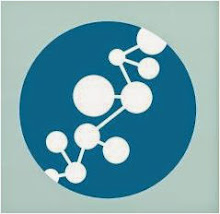
Used for centuries in South America and some Asian countries,
Stevia is a plant that attracts considerable attention from the food industry for its use as sweetener especially after that Coca cola co. and Pepsi co. started to use one of its extract as ingredient of their soft drinks.
The genus Stevia is composed of 240 shrubs and herbs of the Asteraceae family.
The most famous specie is Stevia rebaudiana, well known for its sweet leaves with a licorice-lke after taste.
Extracts of the Stevia rebaudiana with a 95% purity of rebaudioside A (Reb A) were given the FDA thumbs up in the US in late 2008.
In Europe the EU declined approval for dried stevia in 2000, however, saying more research was needed.
In January 2011, EFSA revised their consumer exposure estimates.
Stevia is a plant that attracts considerable attention from the food industry for its use as sweetener especially after that Coca cola co. and Pepsi co. started to use one of its extract as ingredient of their soft drinks.
The genus Stevia is composed of 240 shrubs and herbs of the Asteraceae family.
The most famous specie is Stevia rebaudiana, well known for its sweet leaves with a licorice-lke after taste.
Extracts of the Stevia rebaudiana with a 95% purity of rebaudioside A (Reb A) were given the FDA thumbs up in the US in late 2008.
In Europe the EU declined approval for dried stevia in 2000, however, saying more research was needed.
In January 2011, EFSA revised their consumer exposure estimates.
For high consumers, the estimates are up to four times the EFSA established Acceptable Daily Intake (ADI) of 4 mg per kg body weight per day (mg/kg bw/day).
The revised exposure estimates for high consumers are: children from 1.7 to 16.3 mg/kg bw/day; adults from 5.6 to 6.8 mg/kg bw/day.
Wim Debeuckelaere of the Directorate General for Health and Consumers (DG Sanco) stated in June 2011 that stevia is on schedule for approval by the EC before the end of 2011 at the latest.
Meanwhile, France approved 97% rebaudioside sweeteners, under a clause that allows pre-emption of EU approval for a two year period.
Industrial suppliers of stevia sweeteners are moving in to take advantage of these opportunities starting from Jan 2012.
But in Italy, the extracts and dried portions of the plant cannot currently be used as food ingredient yet and they are sold in strange ways, like "bath salts".
Stevia leaves and exstracts counts no calories and consequently they have a low glycaemic index (which means it does not cause the same spike in blood sugar levels as sucrose and other refined carbohydrates).
So Stevia and its extracts can be considered elective sweeteners for diabetic patients.
30 years of free use in Japan seems to confirm the safety profile.
So Stevia and its extracts can be considered elective sweeteners for diabetic patients.
30 years of free use in Japan seems to confirm the safety profile.
Some positive effects on blood pressure and glicemic control are currently scientifically investigated.
I personally tested both the dried leaves and the rebaudioside extracts and I was astonished by the sweetener power. Beeing hundreds of time more sweet than sugar you need only very low quantities to change the taste of drinks and foods.
I personally don't like the persistence af sweet taste after (sometimes) minutes of use but the problem can be solved using lower quantities.
Licorice-like after tast can be avoided using different extracts but some people like it.






No comments:
Post a Comment